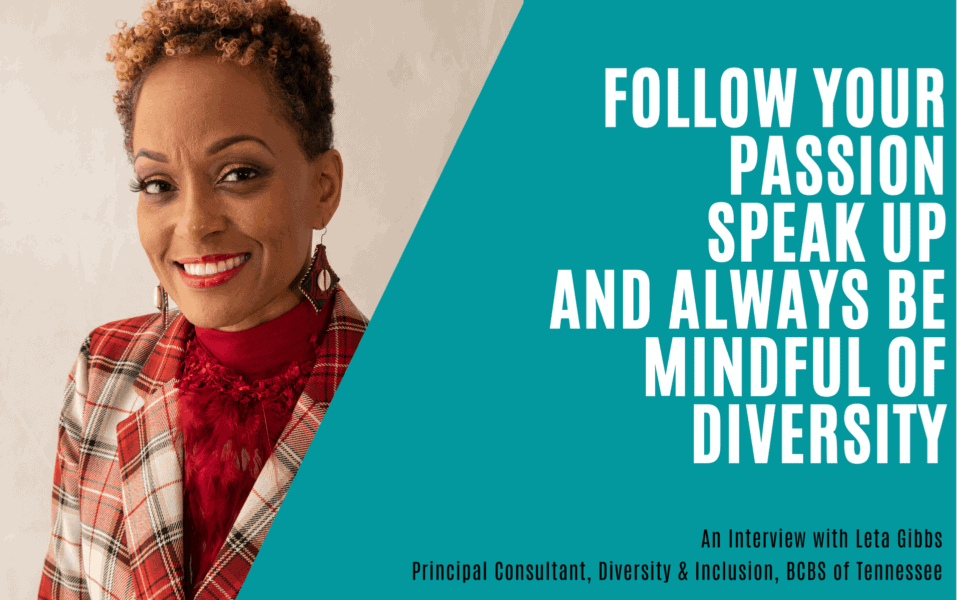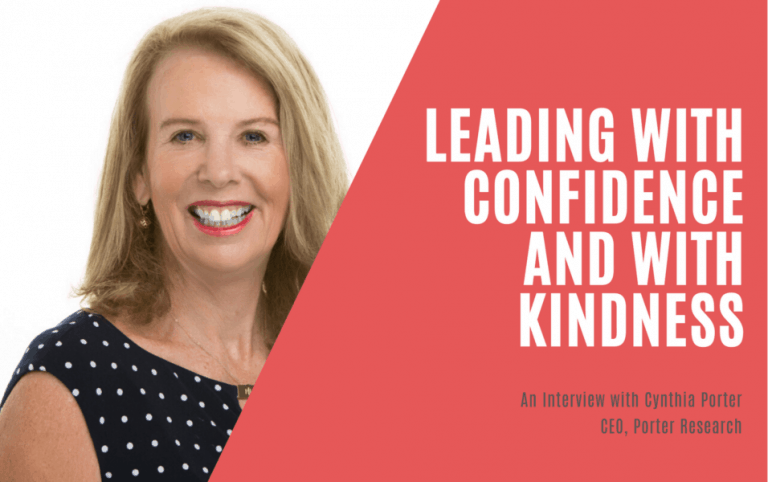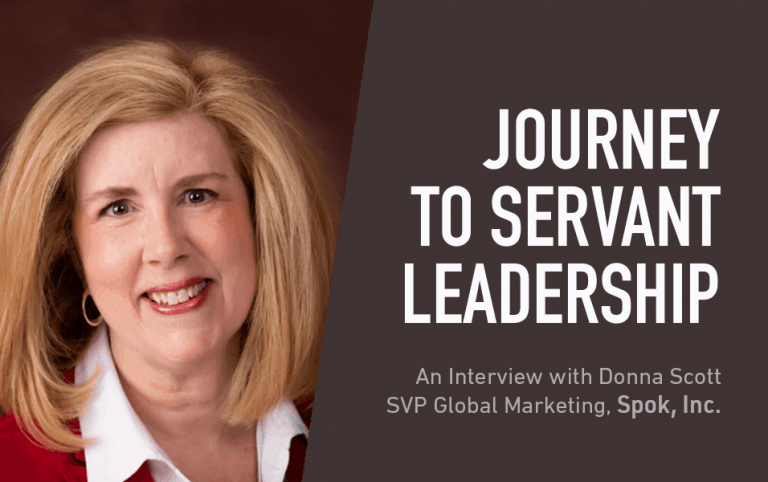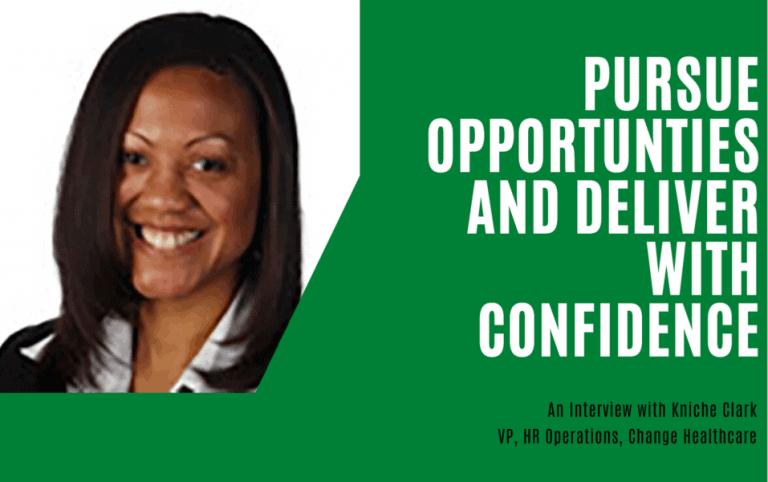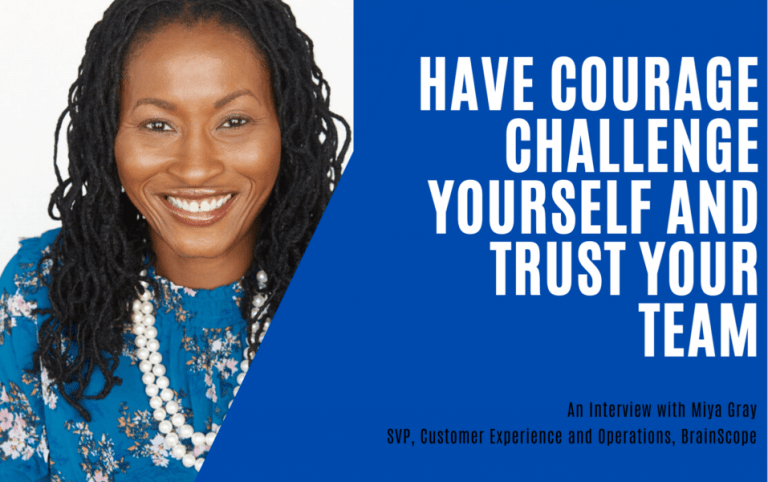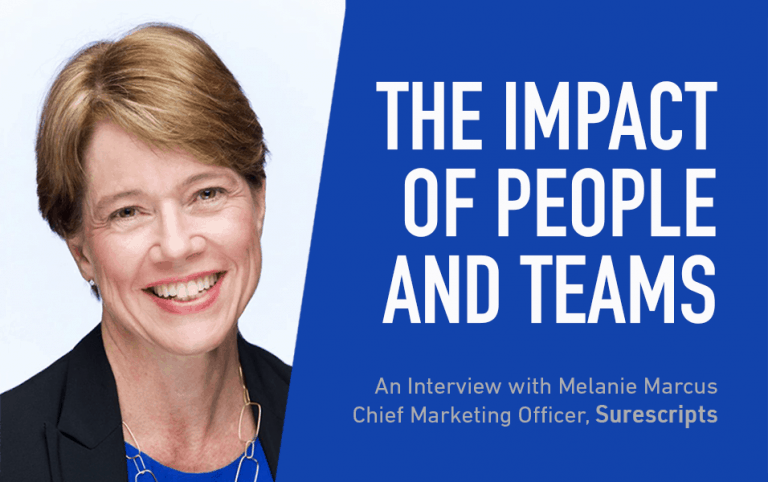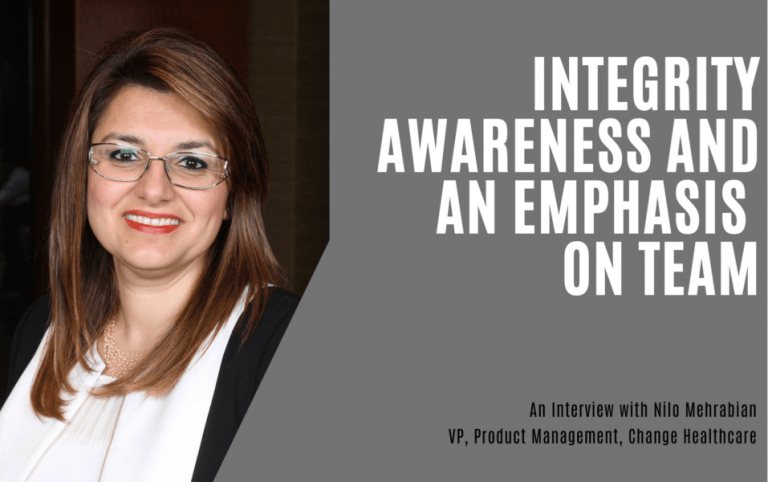Follow Your Passion, Speak Up and Always Be Mindful of Diversity
Follow Your Passion, Speak Up, and Always Be Mindful of Diversity
An Interview with Leta Gibbs, Principal Consultant, Diversity & Inclusion, BlueCross BlueShield of Tennessee
I had a great conversion with Leta Gibbs, Principal Consultant of Diversity & Inclusion at BlueCross Blue Shield of Tennessee. Leta shared her wisdom about the importance of building relationships, speaking up when she had a seat at the table and how she turned her passion for diversity and inclusion into a meaningful and impactful role at her organization. (8 min read)
Tell me about your background and what led you to where you are today.
So, my degree is in finance and I started at a large healthcare company in Connecticut as a financial analyst. Two years into that I realized that I did not want to be working with numbers every day, I just didn’t enjoy it. I had an opportunity from there to make a transition into sales, and that took me everywhere. Sales is what drives most organizations, I was really good at it, and thankfully I had a very successful career in healthcare and pharmaceutical sales. For a while I was the only woman and African American on the direct sales team. I made President’s Club over all of my white peers. But eventually I wanted to try something new. I didn’t go into leadership immediately from sales, but instead pivoted and went into a sales training role for a couple of years. That was good too because, when you think about management and leadership, it has a lot to do with the function of training. In leadership you’re developing a team, whether it’s one person or 50 people. You are training, coaching and mentoring them.
I was always intrigued by diversity and I was always involved in some form or another. Some of that included being engaged through diversity councils, steering committees or Employee Resource Groups, Business Resource Groups or Affinity Groups – every company has a different name for them. I had led several teams, both large and small, I had the VP title, the plaques on the wall, but I wasn’t really fulfilled with my work. I wanted to do something that truly fueled my passion and wasn’t just about a paycheck. Money is great, but if you’re not loving what you’re doing, it really doesn’t matter. So for me, it was really about pursuing my passion and purpose of fulfillment as opposed to my paycheck. At the end of the day, I had to look for what was really giving me energy. I was fortunate to find a position in diversity where I finally had an opportunity to fulfill my passion. In my current role, as a Principal Consultant in workforce diversity, I have corporate responsibility for driving cultural competency and inclusion throughout our entire organization. I have 7,000 employees that I report to and who hold me accountable to the mission of peace of mind, through better health. It’s been a great experience and I wouldn’t want to be doing anything else.
Do you think that your sales experience gave you a unique skillset you could apply to all of your various positions?
Yes, absolutely it did. You know, not everybody is cut out for sales. But if you can be successful in a sales role, it gives you a totally different leverage point because you’ve proven you can connect with the customer, you can connect within the business and you build connections with various different internal departments such as marketing, finance, legal, etc. All of these teams play an integral role when you’re trying to get a deal done. My sales experience provided so much exposure within those teams and organizations and led to greater opportunities for me longer term.
How have you changed since your first management job?
I think I’ve changed a lot! I’ve matured because I’ve lived and survived life experiences such as changes in roles, with other leaders, and I’ve survived changes in the industry. In my first management role I was still learning, and I was so green. As a young leader you really try to do everything by the book, making sure all your “t’s are crossed” and all the “i’s are dotted” accordingly. Now as a mature leader, I feel that I have a greater confidence. I also have stronger work balance than I used to. When you’re young you have a tendency to think you’re invincible. The plan is simple…you just want to succeed and make all the money. Now I’m more focused and very selective in terms of how, with whom, and where I spend my time. I’m more driven around passion and purpose which has given me the flexibility to pivot when needed.
Do you think that you’ve had a different experience as a female leader?
Oh, yeah, I definitely have. You know, historically sales leaders are typically white males. Earlier in my career, I worked for several large healthcare insurance companies and a pharmaceutical company as well. And you certainly didn’t see global diversity in leadership within those organizations back in the day. I think that as women, we are more empathetic and stronger in that regard. You have no choice but to build your character when you are working with a lot of men. You learn how to pull yourself by your bootstraps and do what it takes to get it done and succeed. It’s not to say that men don’t care, but I think as women we’re more naturally nurturers and so we are used to caring for others. We take those traits into leadership when we are managing people and teams. And sometimes being the only female or person of color in leadership makes you find the inner strength to maintain and sustain your existence.
What do you think is the biggest challenge has that you have had to overcome as a leader?
I think it’s being present in the moment and having the courage to speak up. And I have learned to overcome it. If you’re sitting at the table, you should be present and engaged at all times. Someone once told me when you get a seat at the table, you should make your presence known. You should pick up your fork or spoon and use it. It is not enough to just be at the table – you must partake in the discussion, the meal. For example, asking a question or making a comment. You need to make yourself relevant at the table and you may not always feel confident or comfortable to speak up. However, if you don’t say anything “a closed mouth doesn’t get fed” and you will be catastrophically creating career suicide. Over the years, I’ve learned to trust my instincts and maximize that opportunity. Carpe diem!
The other challenge I have is delegating because I’m a very driven person. I’m a hoarder of tasks (laughs), because I know I can control how or when it gets done. I’m getting better about leaning onto others to help spread the workload and giving them an opportunity, realizing that they may not work in the same way that I work, but that’s okay. I have learned to respect our work differences and though it’s so hard to let go of those old habits, I’m intentionally working on it and getting better about it.
What advice would you give to someone just starting out in a management role?
I think the one thing that’s important to acknowledge is that change is constant. When I think of a new leader coming up, I would just remind him or her that you’ve got to be diverse, nimble, strategic, technically savvy, and an effective leader. You’ve got to be willing to pivot on a dime and have the ability to effectively manage multiple tasks, people and projects. You have to be an active listener and show empathy towards your employees and customers. In today’s fast-paced world, you have to stay way ahead of the game and know your competition inside and out. This takes me back to my good ol’ sales days of researching your customers, studying what makes them successful and offering solutions to meet their needs and solve their pain points. This is extremely important in the healthcare industry because technology is the catalyst to constant change. If you take the time to evaluate yourself and be more self-aware then you can learn from others and be a more effective, inclusive leader of your team.
What are you most optimistic about?
Well, I’m hopeful about the future of healthcare and the impact it is having on a local and national level. Healthcare is continuing to evolve and you have stay on top of the changes that impact your employees, organization and members. When I overlay my diversity lens on the industry changes, I still see a lot of healthcare disparities that certainly impact minority populations and health outcomes. That is very apparent as we navigate through a pandemic and see how it is impacting brown and black people across the country. But I’m very optimistic about my ability to bring awareness to these issues from a diversity and inclusion standpoint. I’m also optimistic about technology and the role that it’s playing to help us to address these chronic, generational medical issues.
What rules that you have broken along the way have led to that have led to your success?
I think it’s just going on a different path, being open to not following the trajectory of what a traditional career path is supposed to be. My path was not always following the straight and narrow like that of a typical leader. I took lateral moves into different functional areas in order to gain knowledge and stretch my skill set. I took a job in operations which was outside of my comfort zone, but I was able to build a strong team. It was about driving and changing the culture of that division. I think that the thing to remember and be mindful of is to continue to stay the course and be true to yourself. It is easy to self-doubt and wonder if you are making the right decision. But you have to have faith and trust the process. I am pleased with the changes I have made as I look back over my career and specifically my most recent transition from an operational executive role into focusing on workforce diversity and inclusion.
It was always my passion and it came down to following my heart. I chose to focus on what gave me energy and made me happy both personally and professionally. Sometimes taking a different path and staying true to yourself may not be the status quo and it very well may go against the grain from what everybody else would think you should do. But I have no regrets and I absolutely love the important work that I do and the impact I am making, especially at a time such as now.
What do you want your business legacy to be?
I want to continue to evolve as an inclusive and diverse leader – there’s a lot packed into that because that looks different at every organization. I want to continue to create an engaging atmosphere that allows every voice at the table to be heard, because oftentimes people sit in silence if and when they finally make it to the table. That’s the question that I always want to ask: what voice is not being heard at the table? I want to create a level playing field that is based on the qualities and capabilities of the person and not the unconscious biases that may exist from what you see as discriminatory. The legacy that I would like to leave is one that prepares and equips the next generations beyond me to truly love, honor and respect each other’s differences. Period. I know it sounds cliché, but that’s it, it’s a really simple concept.
What personal Indulgence keeps you balanced?
I’ve always been a clothing curator, a fashionista, and that has become my brand. I just love boutiques, online shopping and home decorating. I am learning how to relax and watching a bit more TV – I’m not somebody that likes to sit at home, so this is new and odd at the same time, but it’s necessary given this current time in the world. I am making the most of it and getting some projects completed in my new home. I also love to read, travel, and look forward to going abroad again as soon as it is safe to do so.
What’s your favorite place to travel?
I like international travel and two years ago, I went to Greece and Sol Principe Spain. This year I was supposed to go to Costa Rica for my birthday in April and to visit Dubai in September, but my plans were derailed due to the pandemic. I enjoy being able to experience other cultures, try new foods, go to museums, and just see how different cultures and the local people live. I prefer more of a cultural and historical adventure. Beaches are great and I enjoy laying out in the sun, but I also want the educational experience as well. So, I think my next stop will either be Italy or South Africa.
What advice would you give to your 16-year-old self, and your 30-year-old self?
When you’re sixteen, you want to do everything, you can’t wait to be grown! (laughs) You want to get out of school, abandon curfews, make money, be independent – basically throw out the house rule book. So, my advice for myself at sixteen years old is to be patient and don’t rush it. My mom used to say, “enjoy your childhood because you have your entire life to be grown.” Little did I know being grown came with so much responsibility. I would also tell my younger self to not be afraid to fail. You’re very invincible at that age and you feel like there is absolutely nothing that you can’t do. But failure is a part of growing and maturing as a person and as a young leader. You cannot live through life without ever making a mistake. Being perfect is a silent killer. It’s just not humanly possible because we fall down, but we get back up.
For my thirty-year-old self, I would go back to what I said earlier, which is trusting my instincts and staying true to myself. Work smarter, not necessarily harder so you can have work-life balance and enjoy the fruits of your labor. Choose your passion over a paycheck. You don’t need to work 60 hours a week – over time it’s just not healthy mentally or physically. Find something to do outside of work, whether that’s volunteering, joining a church group, hitting the gym or spending time with friends. It is important to have that social connection and balance with something greater than just work. The other thing is being willing to be vulnerable, because that’s where the empathy and self-awareness come into play. When you can really allow people to see who you are and you can meet them where they are, you develop a totally different type of mutual respect and love for each other.
What do you look forward to every day?
I had another executive once tell me that every day is a new opportunity. My faith guides me, and I look forward to something different and challenging every day. Honestly, I just love my job, our company, and the impact we make to ensure an inclusive and culturally competent workforce. I am driven by the work we do because I can see the difference we are making to engage, educate, empower a multitude of generations. I look forward to not always doing the status quo because I get bored easily. I am fortunate that every day is met with new opportunities, challenges and allows me to grow by stepping outside of my comfort zone.

